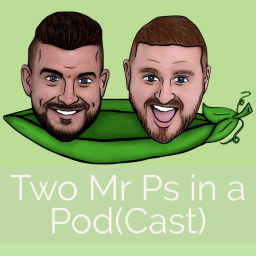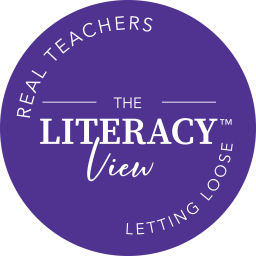
by Kieran Mackle
Welcome to Thinking Deeply about Primary Education, the podcast that gives you a peek inside the minds of some truly inspirational primary teachers. Whether you're new to the profession or a school leader with tons of experience this podcast is a must listen. For references, links and extended cut video episodes head over to www.thinkingdeeply.info
Language
🇺🇲
Publishing Since
12/29/2020
Email Addresses
1 available
Phone Numbers
0 available

April 19, 2025
<p>Episode 224: This week on Thinking Deeply about Primary Education, we bring you a special "Standing Room Only" session led by Gareth Metcalfe. Following last week's discussion, Gareth returns to walk us through the thinking and practicalities behind his project Deconstructing Word Problems.</p><p>In this CPD-style talk, Gareth shares:</p><ul><li><p>The rationale behind deconstructing word problems and the need for a consistent approach.</p></li><li><p>How slow reveal, minimally different examples, and visual representations can help pupils process mathematical structure more effectively.</p></li><li><p>The importance of carefully designed variation and redundant information in promoting deeper understanding.</p></li><li><p>How his classroom-tested materials are structured and how teachers can implement them meaningfully in classrooms</p></li></ul><p>This episode is ideal for teachers, maths leads, and school leaders interested in deepening mathematical reasoning and improving outcomes through carefully designed problem-solving experiences.</p><p>For more info, visit: <a href="" target="_new" rel="noopener">https://icmaths.com/deconwq2</a></p><p>To watch on YouTube click <a href="https://youtu.be/7LwXnC3hXQ8" target="_blank" rel="noopener noreferer">here</a></p><p>If you enjoy this episode, please support the podcast by subscribing on YouTube, leaving a review on Spotify or Apple Podcasts, or making a donation via <a href="https://www.ko-fi.com/tdape" target="_new" rel="noopener">www.ko-fi.com/tdape</a>. Join the conversation over on our Discord server.</p>

April 12, 2025
<p>Episode 223: In this episode of Thinking Deeply about Primary Education, I’m joined by Gareth Metcalfe and Elliot Morgan to explore the ideas behind Gareth's latest project: Deconstructing Word Problems. After three years of development and classroom testing, Gareth shares the thinking and pedagogy that underpin his approach to designing word problems that genuinely help students understand mathematical structures—not just guess at operations.</p><p>We discuss:</p><ul><li><p>The process of breaking down worded questions so that children can process them more effectively.</p></li><li><p>How to design lessons that go beyond isolated word problems and towards connected, meaningful experiences.</p></li><li><p>The role of visual modelling, slow reveal tasks, and redundant information in developing mathematical thinking.</p></li><li><p>Pitfalls teachers often encounter when adapting word problems and how to avoid them.</p></li><li><p>How teachers and schools can get the most out of Gareth’s new resources at <a href="" target="_blank" rel="ugc noopener noreferrer">icmaths.com/deconwq2</a>.</p></li></ul><p>Whether you’re a teacher looking to refine your use of word problems or a maths lead developing school-wide consistency, this episode is packed with practical insight and classroom-tested strategies.</p><p>If you enjoy this episode, please support us by subscribing to our YouTube channel, leaving a review on Apple Podcasts, or making a donation via <a href="https://www.ko-fi.com/tdape" target="_blank" rel="ugc noopener noreferrer">www.ko-fi.com/tdape</a>.</p><p>Join the discussion on Discord via our unseen question submission channel.</p>

April 5, 2025
<p>This week on Thinking Deeply about Primary Education, Emma Lindley-Thompson and John Jackson dive into a landmark study by Bethany Rittle-Johnson and Jon Star: Does comparing solution methods facilitate conceptual and procedural knowledge?</p><p>We explore:</p><ul><li><p>The premise of the study and how the researchers tested their hypothesis through equation-solving tasks.</p></li><li><p>Key findings that shed light on the benefits and challenges of comparing solution methods.</p></li><li><p>Where the responsibility lies—should the teacher or the curriculum initiate comparison-based learning?</p></li><li><p>Whether and how teachers can balance <strong>direct instruction</strong> with opportunities for pupils to <strong>explore and compare</strong> independently.</p></li><li><p>How we might adapt these findings for the <strong>primary classroom</strong>, ensuring comparisons support learning without overwhelming students.</p></li></ul><p>This episode offers valuable insights for anyone teaching mathematics, developing curriculum, or interested in research-informed approaches to deepening conceptual understanding.</p><p>If you enjoy this episode, please support us by subscribing to our YouTube channel, leaving a review on Spotify or Apple Podcasts, or making a donation via <a href="http://www.ko-fi.com/tdape" target="_blank" rel="ugc noopener noreferrer">www.ko-fi.com/tdape</a>. Join the discussion on our Discord server!</p>

Two Mr Ps in a Pod(Cast)

Anna Stokke

Tom Sherrington & Emma Turner

Keep It Light Media / Spotify Studios

Rob Brydon | Wondery

Joe Wicks

Global

Goalhanger

Annie Macmanus

Keep It Light Media

Chris & Rosie Ramsey

BBC Sounds

BBC Radio 5 Live

Global

Faith Borkowsky and Judy Boksner
Pod Engine is not affiliated with, endorsed by, or officially connected with any of the podcasts displayed on this platform. We operate independently as a podcast discovery and analytics service.
All podcast artwork, thumbnails, and content displayed on this page are the property of their respective owners and are protected by applicable copyright laws. This includes, but is not limited to, podcast cover art, episode artwork, show descriptions, episode titles, transcripts, audio snippets, and any other content originating from the podcast creators or their licensors.
We display this content under fair use principles and/or implied license for the purpose of podcast discovery, information, and commentary. We make no claim of ownership over any podcast content, artwork, or related materials shown on this platform. All trademarks, service marks, and trade names are the property of their respective owners.
While we strive to ensure all content usage is properly authorized, if you are a rights holder and believe your content is being used inappropriately or without proper authorization, please contact us immediately at [email protected] for prompt review and appropriate action, which may include content removal or proper attribution.
By accessing and using this platform, you acknowledge and agree to respect all applicable copyright laws and intellectual property rights of content owners. Any unauthorized reproduction, distribution, or commercial use of the content displayed on this platform is strictly prohibited.